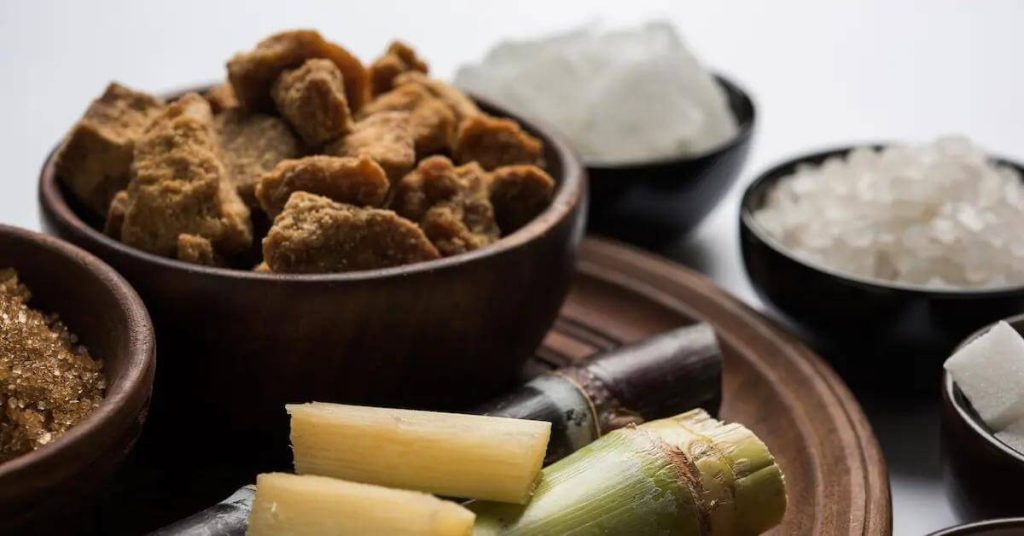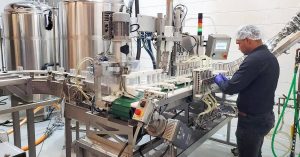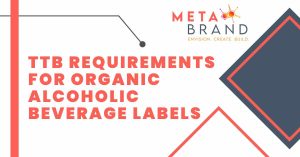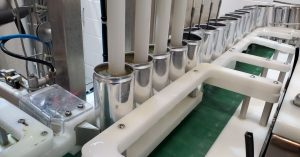Key Takeaways:
- Choosing fermented cane sugar drinks promotes eco-friendly agriculture.
- Aligns with healthier, sustainable consumer trends.
- Represents a smart choice within the complex landscape of alcohol regulations.
Fermented cane sugar is stepping into the spotlight, revolutionizing the way we think about alcoholic beverages. Given its bland taste and absence of gluten, it’s hardly surprising that this sweet foundation is quickly winning over the hearts of both beverage crafters and enthusiasts.
Looking into its escalating fame reveals that fermented cane sugar not only presents an eco-friendly choice but also appeals to individuals prioritizing their well-being.
In this guide, you’ll learn about the unique flavors that can be achieved through fermentation processes. Additionally, gain an understanding of how to maneuver through the complex legal frameworks surrounding these cutting-edge beverages. This article will give you everything you need to know about how fermented cane sugar is shaping future trends in alcohol production.
The Rise of Fermented Cane Sugar in Alcoholic Beverages
Imagine your favorite drink, but smoother, more sustainable, and with a unique twist. That’s what fermented cane sugar is bringing to the table in the world of alcoholic beverages. The movement towards fermented cane sugar isn’t solely focused on flavor enhancement; it’s revolutionizing our perceptions of beverages.
Understanding the Appeal
Fermented cane sugar is winning hearts for its neutral flavor profile, making it an ideal base for innovative concoctions. This sugar concoction, unlike older foundations that might dominate subtle tastes, allows the true essence of additional components to emerge vividly.
Plus, being naturally gluten-free adds another feather to its cap, catering to health-conscious consumers looking for delicious yet mindful options.
The pivot to using fermented cane sugar as a choice for alcoholic foundations is driven by an increased consciousness of dietary limits and a communal trend towards more wholesome consumption habits. The market has noticed too; sugar-brews are now celebrated not only for their versatility but also because they offer low-calorie alternatives without sacrificing taste or fun.
Market Trends Shaping Demand
Consumer preferences are evolving faster than ever before with an emphasis on sustainability and health benefits leading the charge. People want to enjoy their drinks guilt-free—knowing they’re choosing something that aligns with both their wellness goals and eco-friendly values.
Demand for these innovative beverages is skyrocketing as drinkers everywhere seek out new experiences that don’t compromise on quality or responsibility that MetaBrand outlines. With fermentation processes offering a pathway to harnessing nature’s bounty responsibly while creating exceptional flavors, it’s no wonder why fermented cane sugar-based alcohols have become so popular among producers and consumers alike.
New Flavor Profiles Unleashed by Fermented Cane Sugar
Fermented cane sugar is revolutionizing the world of alcoholic beverages with its flavor-neutral base. This neutral canvas allows beverage creators to experiment wildly, crafting drinks that can range from subtly sweet to complex and bold without the interference of underlying flavors.
In the enchantment of brewing, it’s the fermentation stage that turns simple sugars into an unparalleled alcoholic foundation. Unlike traditional barley malt bases, fermented cane sugar does not impose a heavy or distinct taste, making it perfect for infusing with various flavor variations.
Imagine sipping on a ginger beer where the zesty punch is not overshadowed by malty undertones or enjoying a pineapple beer that truly lets tropical notes shine through.
Moreover, this method supports health-conscious trends by producing gluten-free alcoholic options. Consumers now have access to deliciously crafted beers and spirits that are easier on their digestive systems and cater to those with specific dietary restrictions. Dive into the journey of finding these key components right at this spot.
Navigating Legal Landscapes and Taxation
When it comes to crafting alcoholic beverages with fermented cane sugar, understanding the legal landscape is as crucial as nailing that perfect flavor profile. Mastering the art of compliance isn’t merely adhering to regulations; it’s about seizing chances in an industry eager for novel breakthroughs.
Fermented cane sugar has been classified as beer for federal taxes, which might sound like a sweet deal at first. But here’s where things get fizzy—state classifications vary widely.
Some states might treat your latest brew more like a spirit than a beer, affecting everything from taxation rates to where you can sell your products. Imagine the surprise when what you thought was going to be taxed like a light lager ends up costing you craft cocktail dollars.
The key is not just to create but also navigate these regulations smartly. Embarking on this venture or broadening your range requires a keen awareness of these regulatory nuances. It could mean the difference between seeing your drink on grocery store shelves or confined to niche markets.
Consumer Preferences and Health Considerations
The Gluten-Free Advantage
Nowadays, health trends aren’t just fads; they’re revolutionizing how we eat and drink. Take fermented cane sugar-based drinks, for example. They’re hitting the sweet spot between indulgence and wellness, thanks to their naturally gluten-free attribute.
For folks aiming to sidestep gluten while still enjoying themselves, this revelation is nothing short of fantastic.
Health-aware folks are driving a transformation in drink choices, gravitating towards those that blend nourishment with pleasure. With an eye on low-calorie and gluten-free options, people are turning away from traditional sugary sodas towards more natural alternatives like fermented cane sugar beverages. Opting for these beverages allows indulgence in sweetness without the worry of calorie overload, blending pleasure with health mindfulness.
But why stop at being naturally gluten free? The magic of fermented cane sugar doesn’t end there. It serves as a zero-calorie sweetener too—yes, you read that right.
Fermented cane sugar can undergo processes where all sugars are converted into alcohol or carbon dioxide through fermentation, leaving behind no calories but maintaining sweetness levels times sweeter than your regular granulated sugar. Think about enjoying your favorite alcoholic beverages or ginger beer with none of the weight gain worries.
This innovative approach not only caters to our cravings but also aligns with sustainable practices by utilizing raw green materials like stevia plant extracts or fruit sugars from grocery store favorites such as pineapples for pineapple beer production—a testament to modern technology meeting ancient fermentation methods head-on.
Bringing Fermented Cane Sugar Craft Cocktails to Market: Potential Challenges
Mixologists aiming to introduce fermented cane sugar craft cocktails face a complex landscape of challenges. Here’s a breakdown of the potential hurdles:
-
Regulatory Compliance: Navigating the regulations surrounding alcoholic beverages is a daunting task. Various laws govern the production, labeling, and distribution of such drinks, and staying compliant is crucial to avoid legal issues.
-
Complex Formulations: Crafting the perfect fermented cane sugar beverage requires precision and expertise. Mixologists must experiment with formulas and fermentation processes to achieve the desired taste and quality.
-
Sourcing Ingredients: Finding high-quality and consistent ingredients can be another significant challenge. Whether it’s the cane sugar itself or additional flavorings, securing reliable suppliers is essential to maintain product consistency.
-
Understanding the Market: Identifying and reaching out to the appropriate target audience is vital for success. Mixologists must conduct thorough market research to understand consumer preferences and trends.
-
Production and Scale: Moving from small-batch production to larger-scale operations requires careful planning. Ensuring that quality is maintained during upscaling is essential, which might mean investing in new equipment or facilities.
By addressing these challenges, mixologists can better position their unique offerings in a competitive market.
Fermentation Techniques and Innovations
Yeast, long overlooked in the transformation of sugars into alcohol and carbon dioxide, is witnessing its role evolve as novel fermentation strategies emerge. These methods are not just about brewing your typical beer; they’re revolutionizing how we think about fermented cane sugar beverages.
One innovative approach gaining traction is using a fermentation vessel designed specifically for fermenting cane sugar. By tweaking the conditions just right, this method empowers brewers to extract distinctive tastes from their concoctions. It’s a game-changer for those looking to stand out in a crowded market.
The process of converting sugar into alcohol through fermentation isn’t new, but what’s exciting is how this age-old method can yield such diverse results depending on variables like temperature, yeast strains, and fermentation time. Whether it’s creating a crisp cider or a robust rum-like drink from fermented sugarcane juice—there’s no limit to creativity when you have the right tools at your disposal.
What Are the Steps Involved in the Fermentation Process of Sugarcane?
Embarking on the journey of sugarcane fermentation can lead to delightfully complex flavors. Here’s how you can do it:
-
Juice Extraction: Begin by extracting the juice from sugarcane. You can either use a juicer or try a powerful blender. This step sets the foundation for your fermentation process.
-
Mixing Ingredients: In a large vessel, combine the sugarcane juice with a suitable yeast or starter culture. Add water in accordance with specific recipe instructions to achieve the right balance.
-
Fermentation Process: Cover your fermentation vessel with a lid or cloth. This provides essential airflow while safeguarding against unwanted contaminants. Allow the mixture to ferment at a stable room temperature, ideally between 70-85°F (21-29°C). This step may take several days.
-
Straining and Bottling: Once fermentation is complete, pour the mixture through a fine mesh strainer to separate the liquid from any remaining pulp. Transfer the clear liquid into clean, dry bottles, securing them tightly. Store the bottles in a cool, dark place to enable secondary fermentation and carbonation.
-
Final Use: At the end of this fermentation process, you have a base that can be distilled further to achieve a spirited sugarcane beverage.
By following these steps, you can successfully convert sugarcane juice into a fermented product ready for either consumption or further distillation.
Sustainability in Production
When we talk about creating alcoholic beverages from fermented cane sugar, the conversation often leads us to sugarcane fields. The sprawling fields from which we derive our initial sweetness are not merely origins of indulgence but also potent allies in the quest for ecological balance.
Navigating the art of cultivating these landscapes with a focus on environmental preservation unveils their true allure. It’s a game-changer knowing that by choosing sustainable products, we’re actually making a dent in preserving our planet.
So, what’s the magic behind this process? Well, it starts with understanding that every sip could either support environmental conservation or contribute to its degradation.
Sugarcane fields have the potential to become models for sustainable agriculture practices if managed properly. Picture utilizing cutting-edge irrigation methods to slash water consumption or implementing crop rotation and organic farming practices to preserve soil vitality without resorting to artificial fertilizers or pesticides. These are not mere fantasies; they’re actual tactics being deployed in the present day.
THE FUTURE LANDSCAPE – INNOVATIONS & MARKET DYNAMICS
With the evolution of synthetic biology, fermenting cane sugar is undergoing a transformative shift. This leap forward allows for pilot production methods that were once deemed futuristic to now pave the way for more efficient and sustainable alcoholic beverages.
Synthetic biology has ushered in a new era where the art of fermentation is not just about brewing but precisely sculpting flavors and strengths. Traditionally, creating alcohol from fermented cane sugar was straightforward but limited by natural yeast capabilities. Now, engineered yeasts enhance flavor profiles while optimizing alcohol content, making every sip an experience worth remembering.
The commitment to sustainability is integral, influencing not just the quality but also ensuring that every step forward is a stride towards environmental harmony. Sugarcane fields are being managed with practices that not only benefit our planet but ensure a continuous supply of quality raw materials for fermentation. Exploring eco-friendly sourcing avenues illuminates how environmental stewardship is steering the progress within the sector.
So, how does this translate for both the folks buying and those crafting these products? In essence, we stand at the threshold of savoring spirits that not only tantalize our taste buds with their diverse and improved flavors but are also crafted with a deep commitment to sustainability and ethical practices.
The integration of synthetic biology into pilot production stages promises drinks that cater to both our sweet tooth and eco-conscious mindset without compromising on quality or taste.
Fermented Cane Sugar: The Bottom Line
Fermented cane sugar is revolutionizing the world of alcoholic beverages. It’s clear why this trend is catching on: neutral flavor, health perks, and a nod to sustainability.
Keep in mind its adaptability that paves the way for distinctive tastes. Think about how it caters to those seeking gluten-free options. And don’t forget its role in pushing sustainable practices forward.
For more information, visit MetaBrand Corp to learn more.












